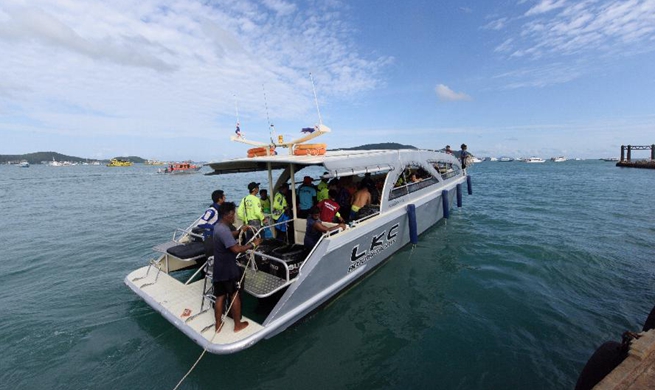DUBLIN, July 6 (Xinhua) -- The lower house of the Irish parliament on Friday passed a bill of amendments to the country's current road traffic laws, which mainly aims to tighten control over drink driving in the nation where alcohol drinking is very popular among local residents.
The amendment bill, tabled by the Irish Minister for Transport, Tourism and Sport, was eventually passed by the lower house after nearly a year of delays and debates. In Friday's voting, 75 parliamentarians voted in favour of the bill while only eight others voted against it.
The bill is set to be implemented after going through some procedures at the senate as the Irish laws stipulate that the senate can not veto the laws passed by the lower house.
Under the new bill, anyone caught driving with over 50mg of alcohol per 100ml of blood will be deprived of his or her driving license whether it is his or her first offence or not, whereas the current law is more lenient towards drink driving and people caught driving with an alcohol level between 50mg and 80mg per 100ml of blood only need to face a deduction of three penalty points out of a total of 12 points for a three-year period plus a 200-euro (235 U.S. dollars) fine.
In Ireland, 50mg of alcohol per 100ml of blood is a starting point for defining drink driving.
The new bill also makes it an offence for car owners to allow a learner to drive their cars unaccompanied by a qualified driver, whereas the current law only punishes learners driving cars unaccompanied.
Hailing the passage of the new bill, Transport Minister Shane Ross believed that the new law will save more lives on the Irish roads.
According to the latest officials statistics, at least 75 people were killed in fatal road accidents in Ireland during the first half of this year, five more deaths than the same period last year.
The Irish government aims to make the country's roads as safe as the best performing countries in the European Union. It vows to bring down the annual number of road fatalities in the country to 120 or fewer by the year 2020, a tough target for a nation with a population of nearly 4.8 million people.












